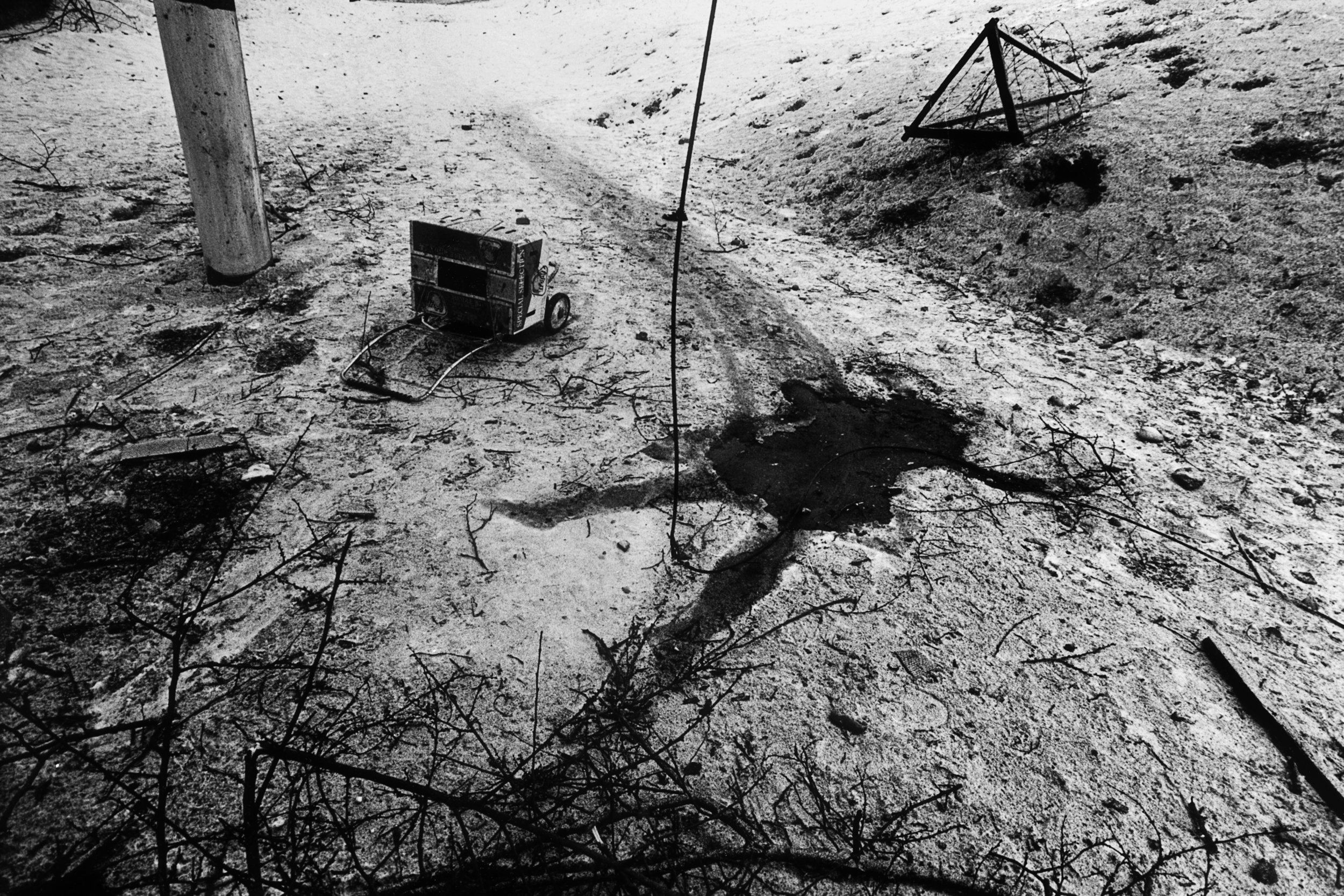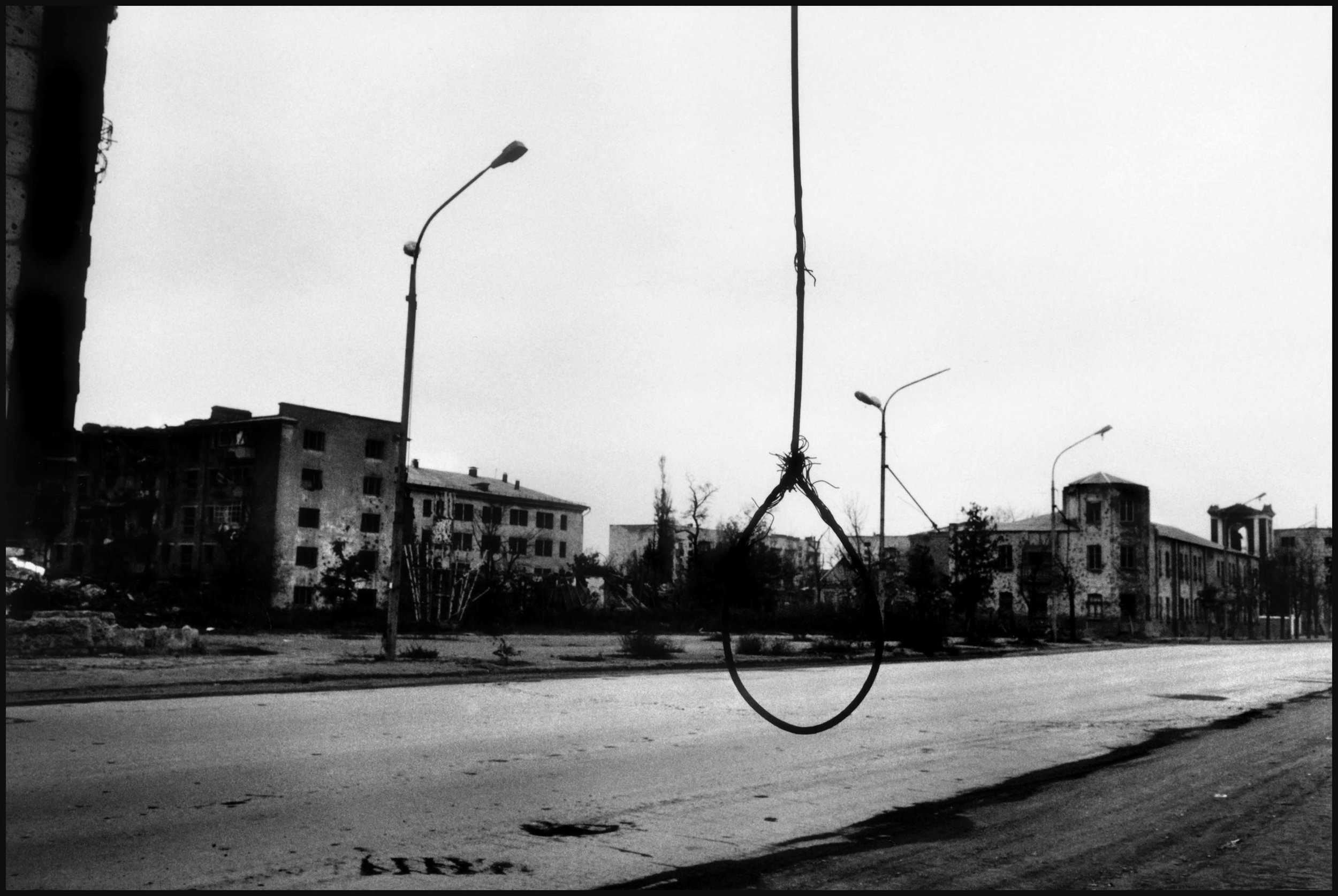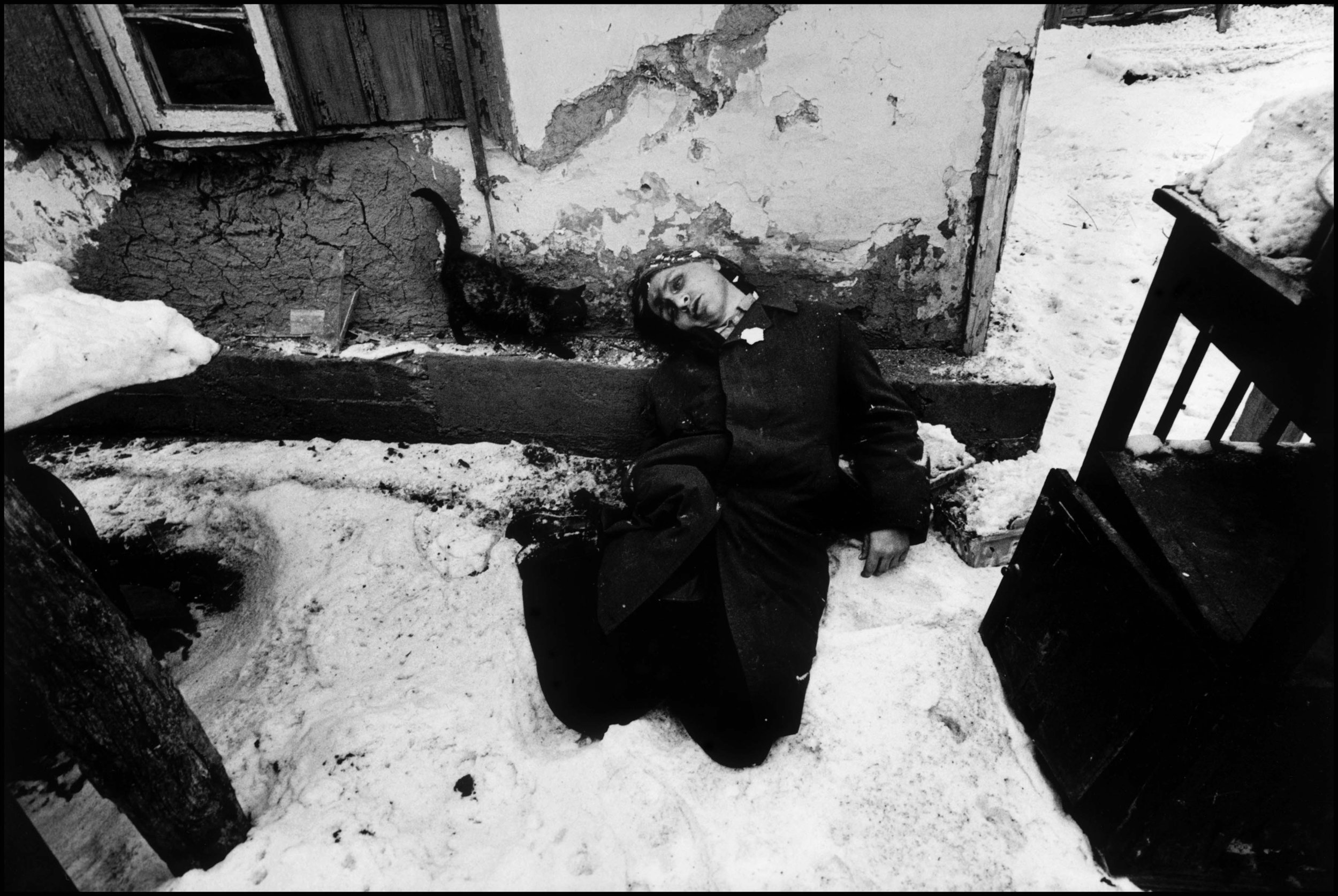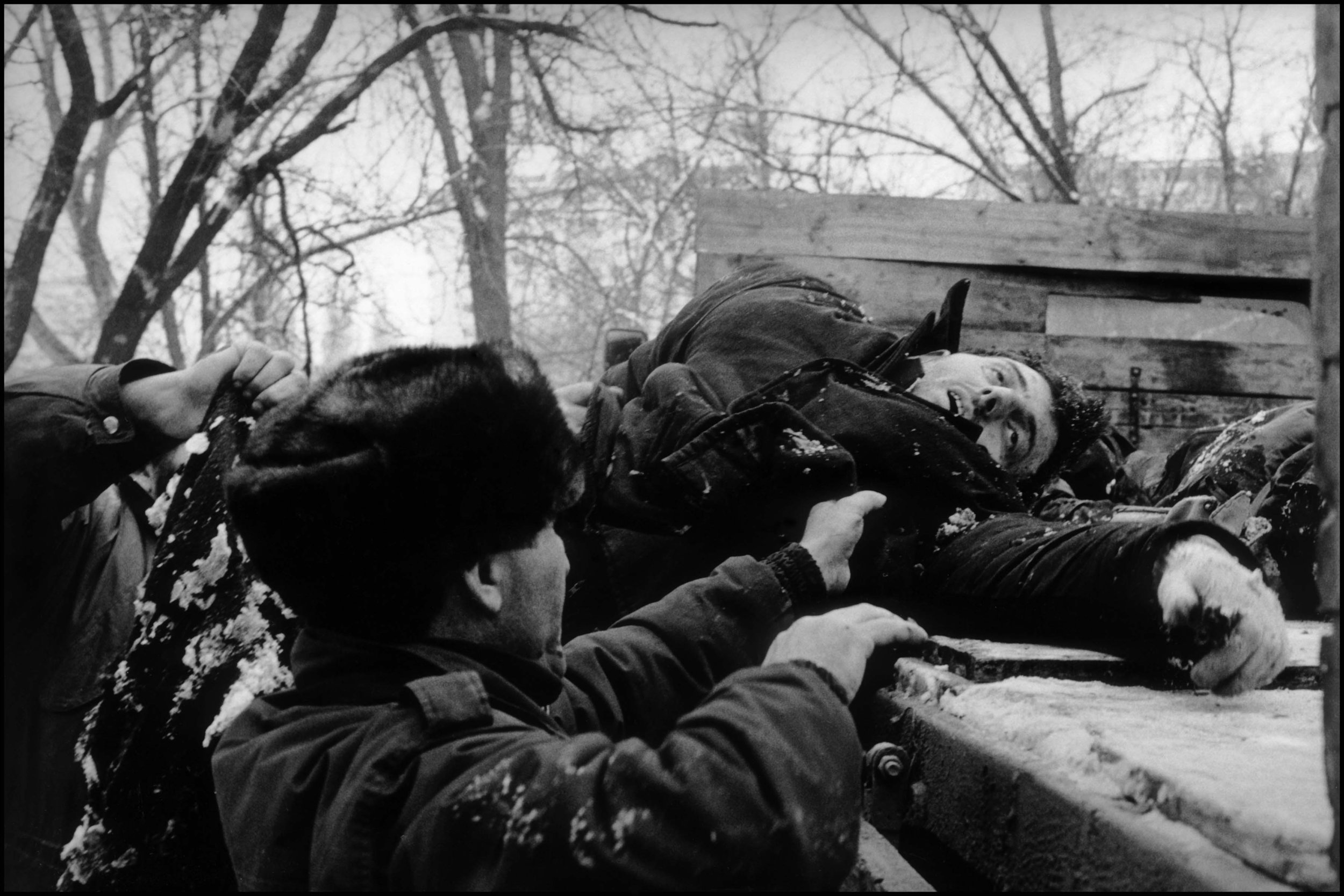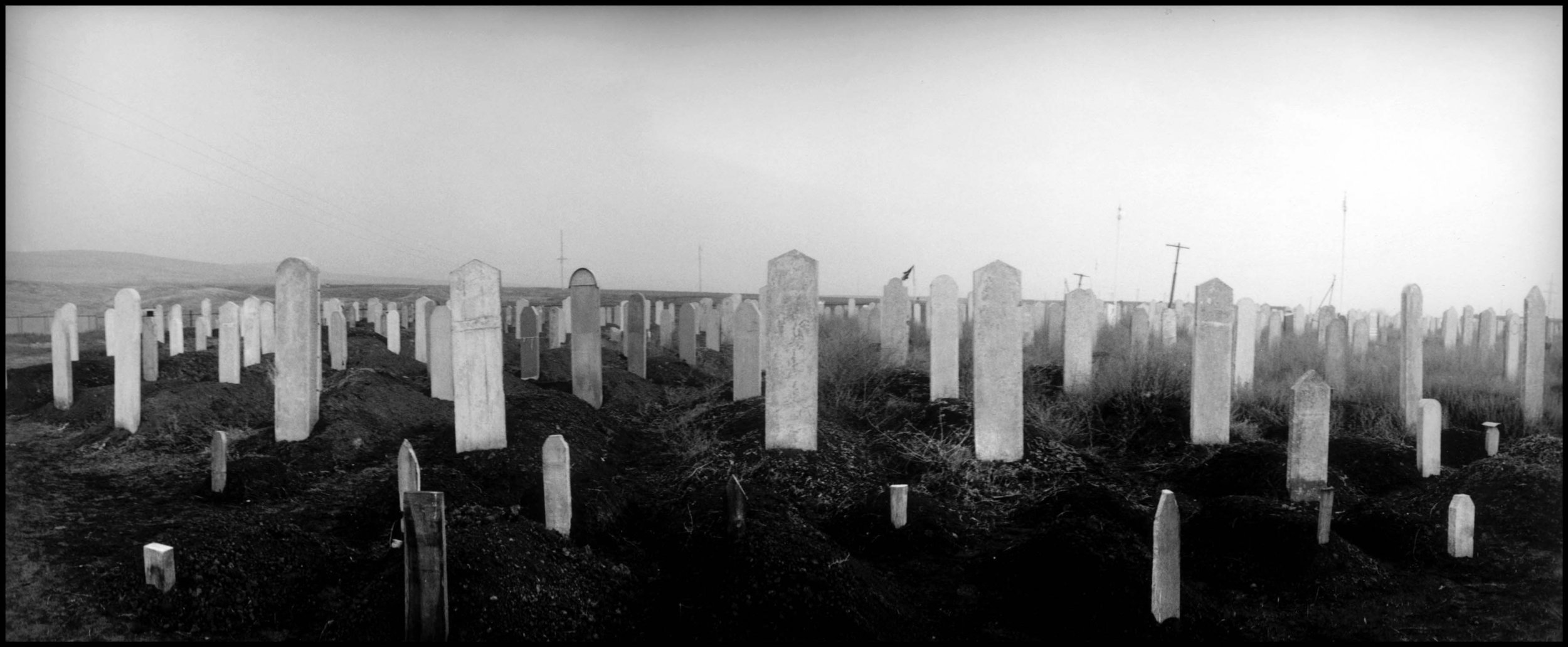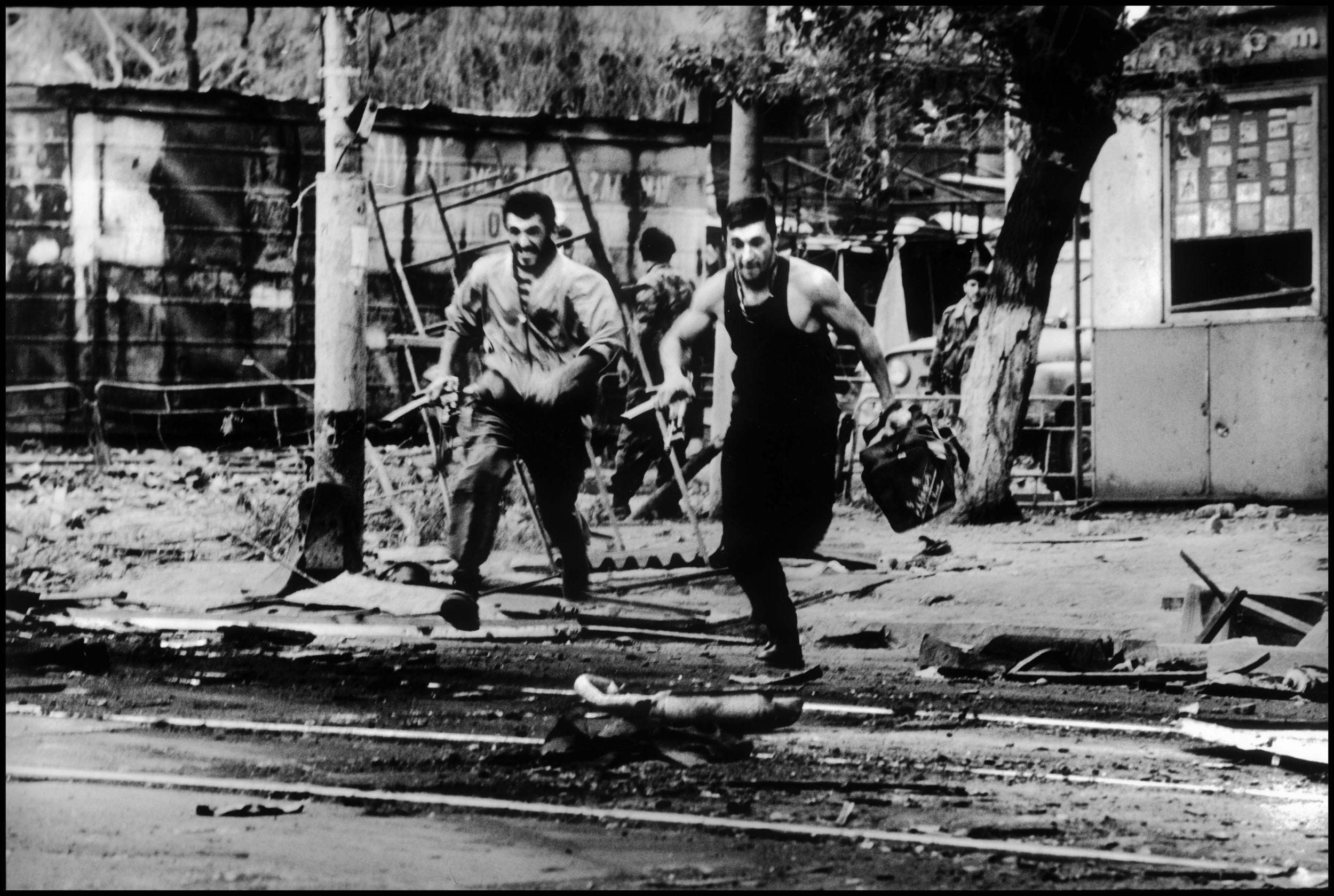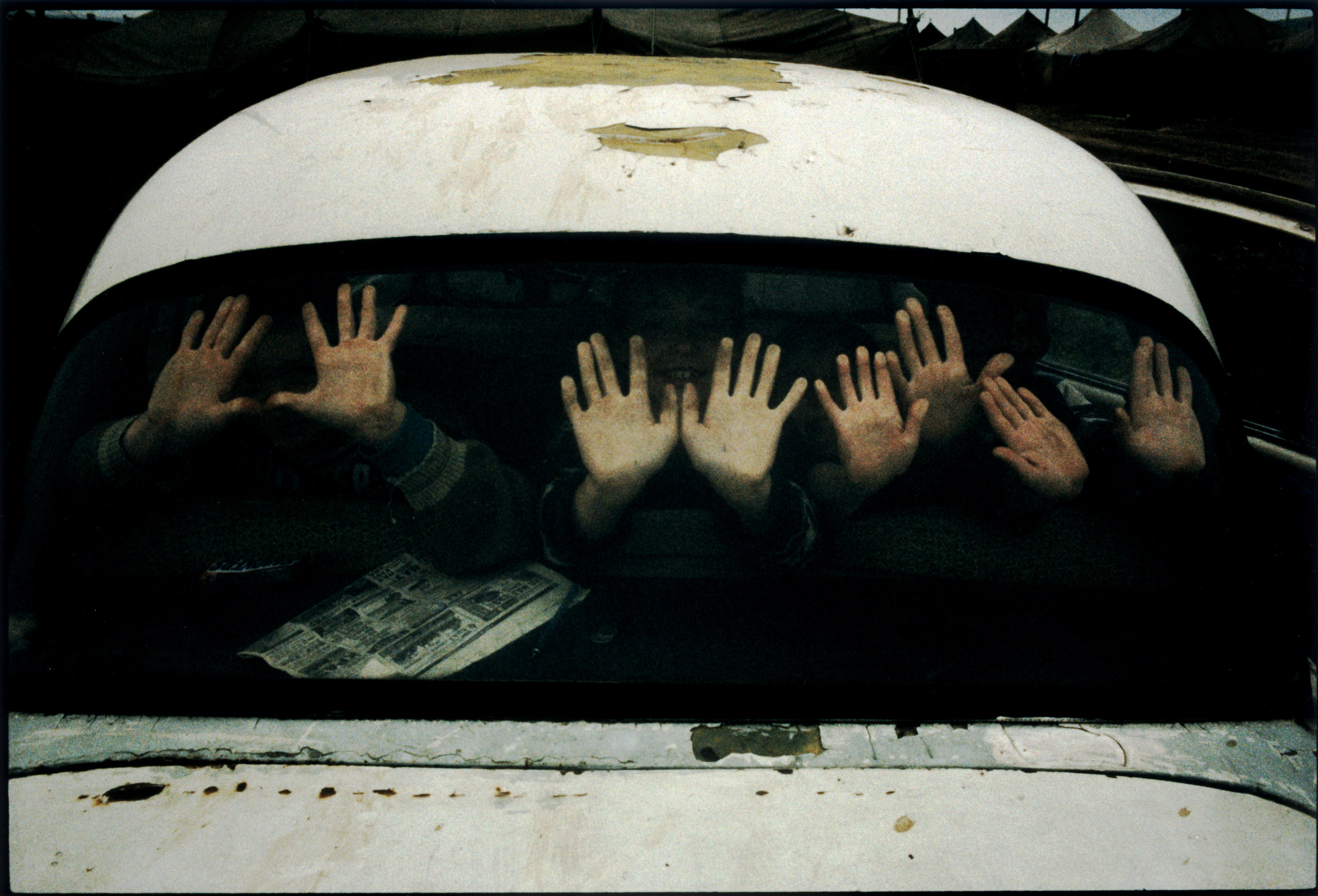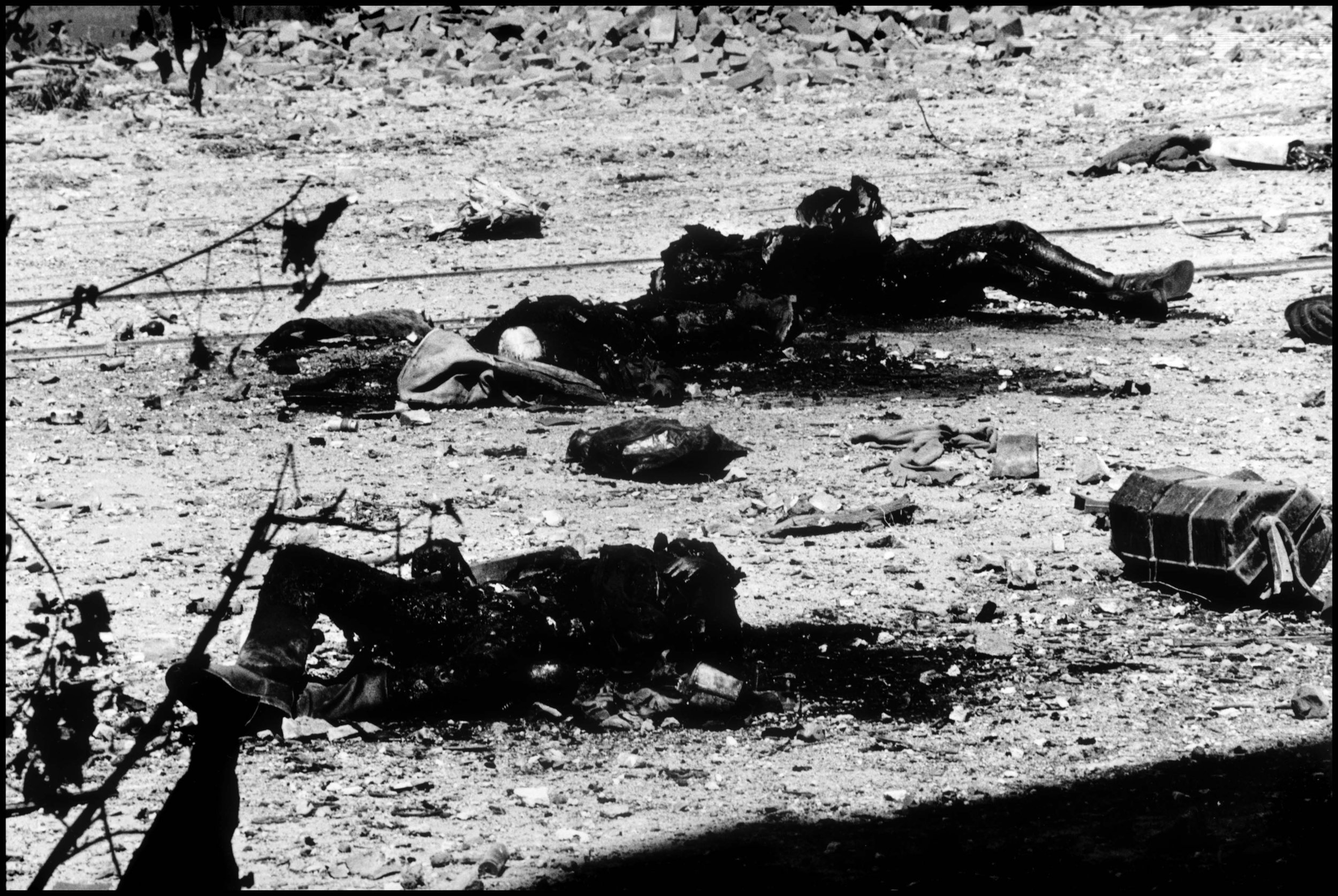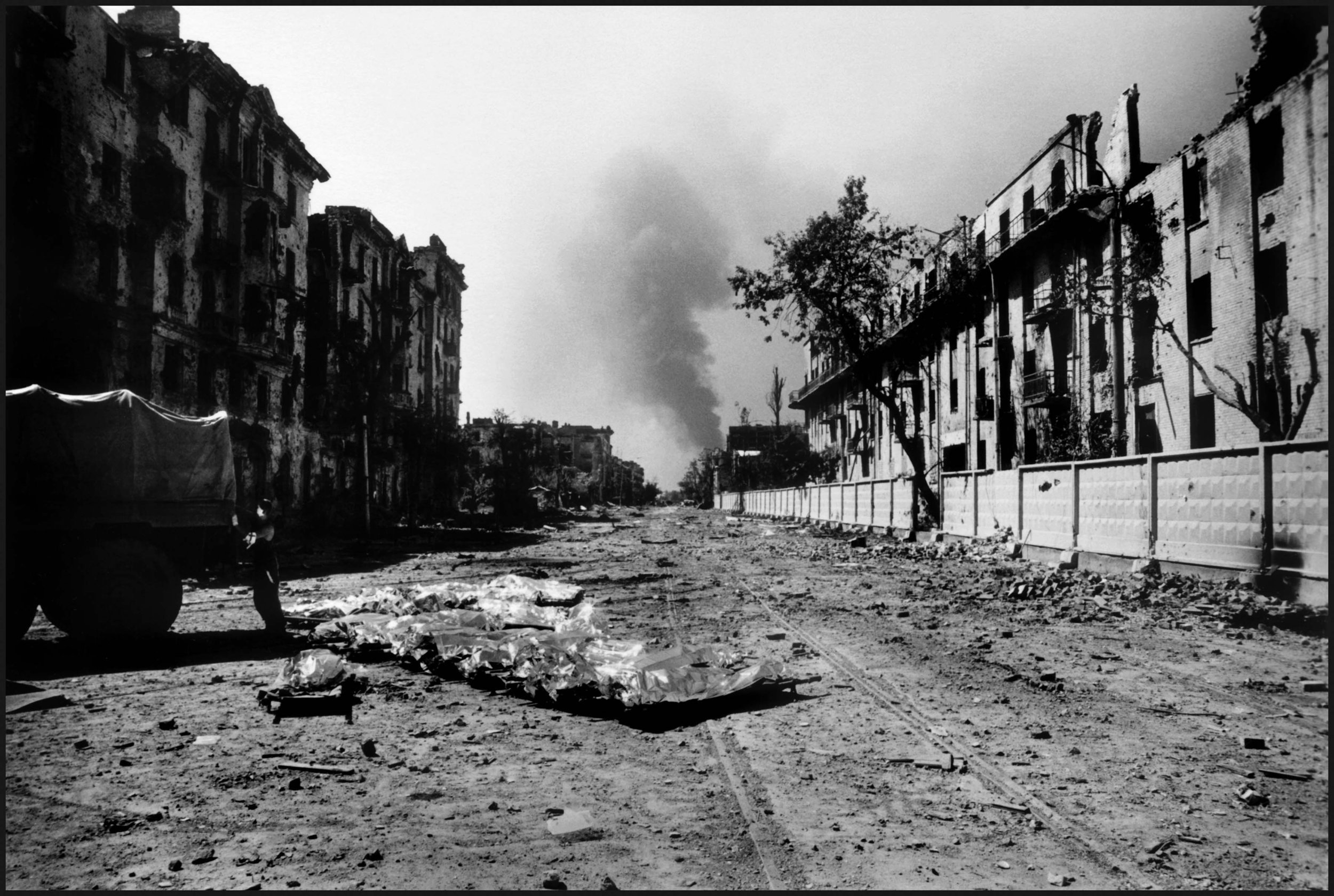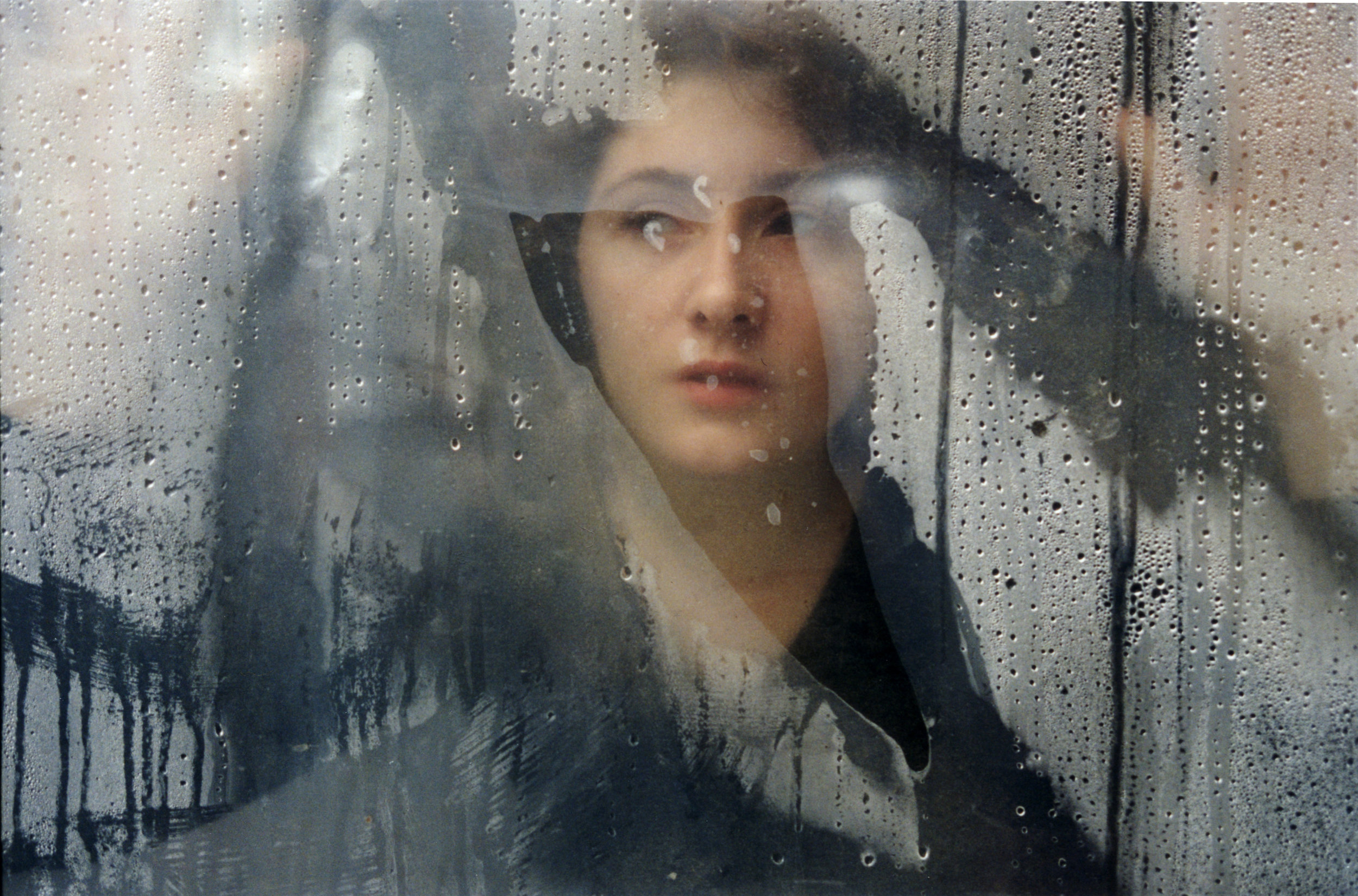In 1944, Stalin accused the Chechen people of collaboration with the Nazis and exiled them to central Asia and Siberia. Over the following decade Soviet citizens of numerous ethnic backgrounds came to live in Chechnya, starting a process of integration. It was only in 1957, during Khruschev’s time, that the Chechens themselves slowly began to migrate back to their homeland.
January 2003, Marhet Magomadova, 41, with one of her five children. "I am frightened of going back to Argun (near Grozny)", she says. "My children are scared too.They saw their father and uncle die in front of them. They were shot under our eyes by a Russian helicopter gunship."
A Chechen woman who fled fighting in Grozny now lives as a refugee in Georgia. Her son was wounded during bombing attacks.
With the break-up of the Soviet Union in 1991, Chechnya’s goal to become an independent Islamic state received surprisingly little reaction from the Kremlin. The reply finally came in late 1994, as Yeltsin began to hint at an armed solution to the situation.
In December 1994, during a military build-up in Chechnya, Russia’s Defense Minister, Pavel Grachev, boasted that he would need only hours and one division of storm troopers to take the Chechen capital, Grozny.
The attack began on New year’s eve, 1994. It was to become the beginning of one hundred years of War.





